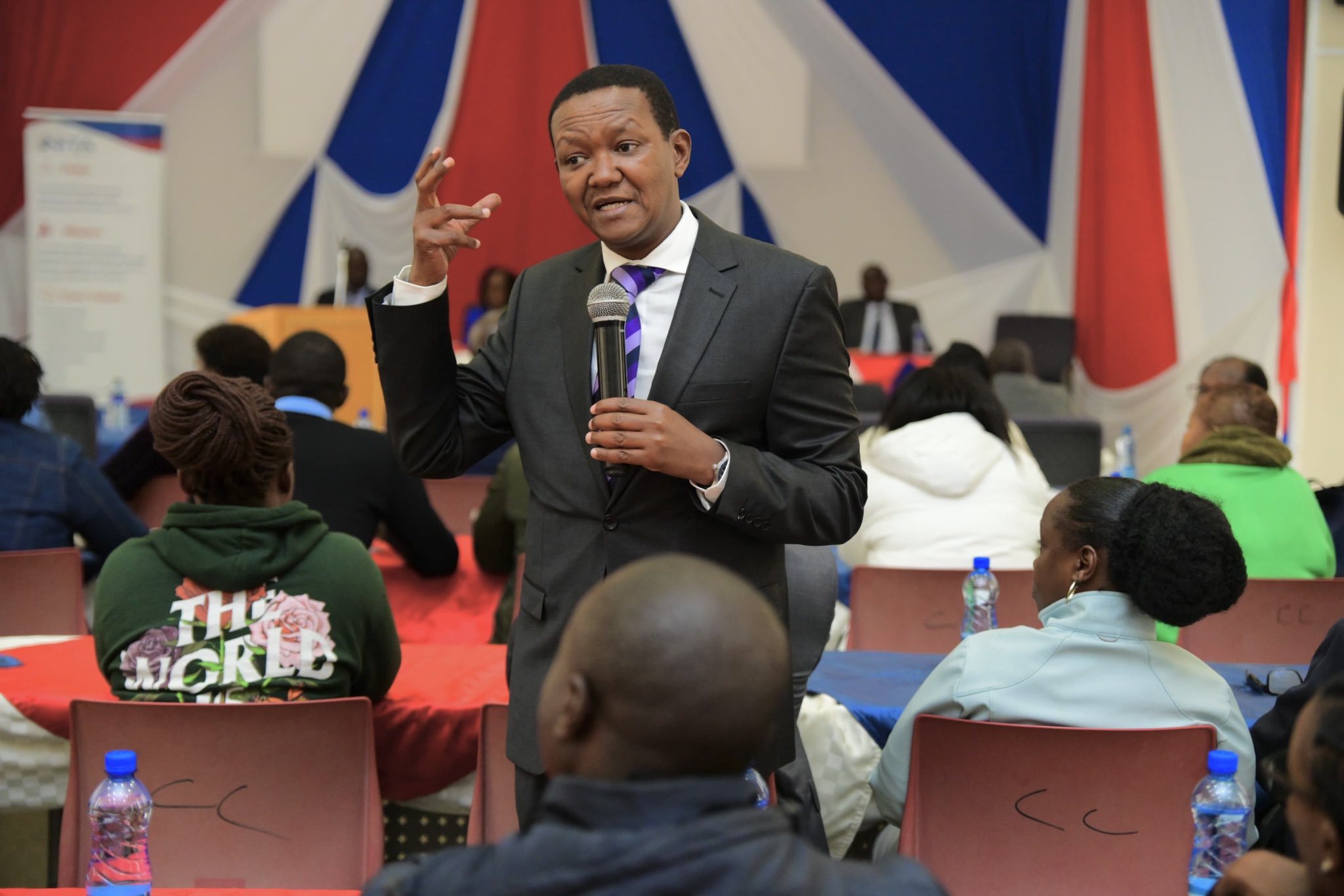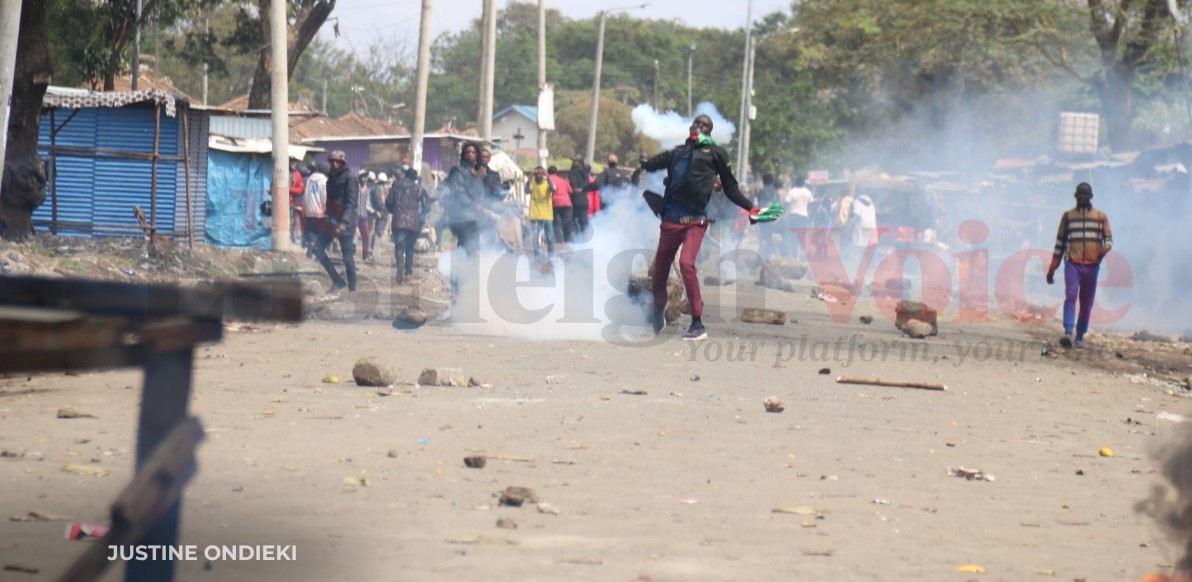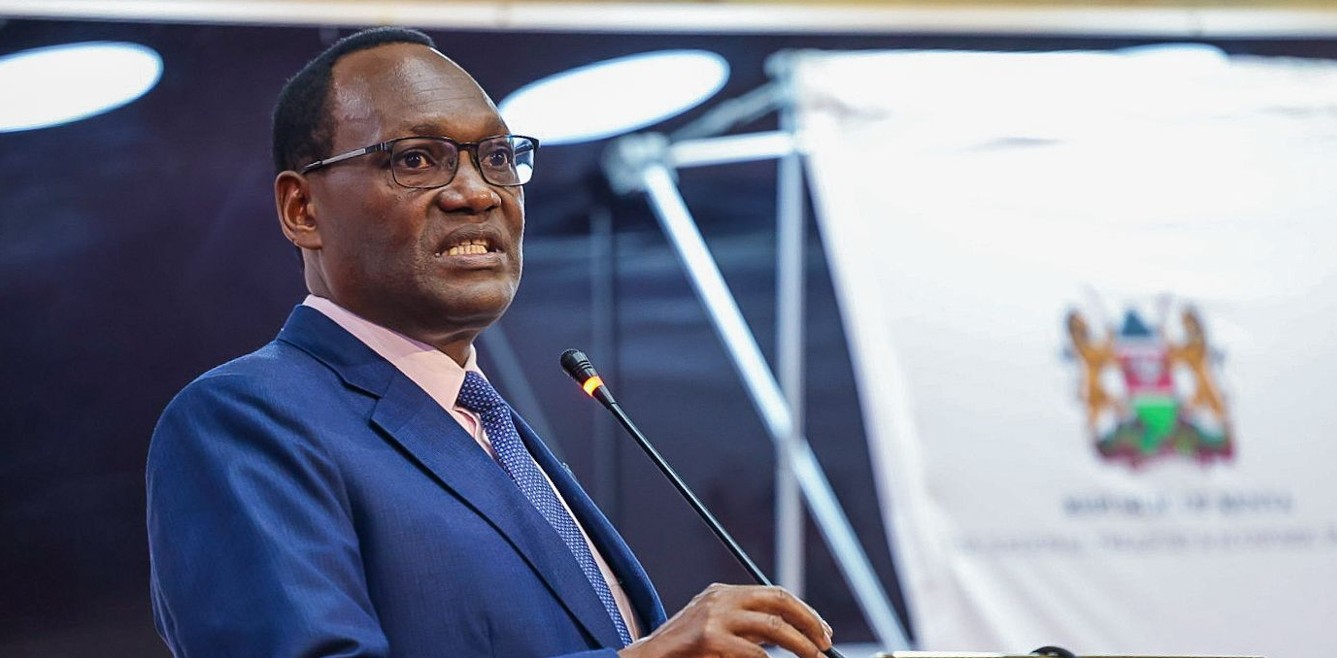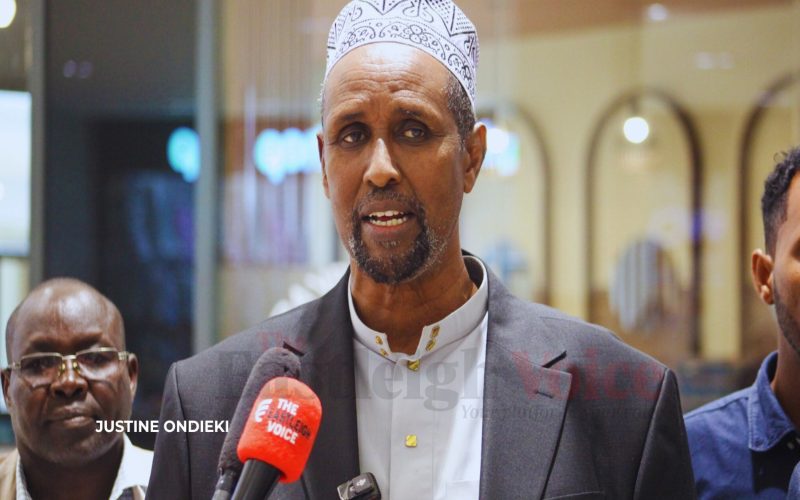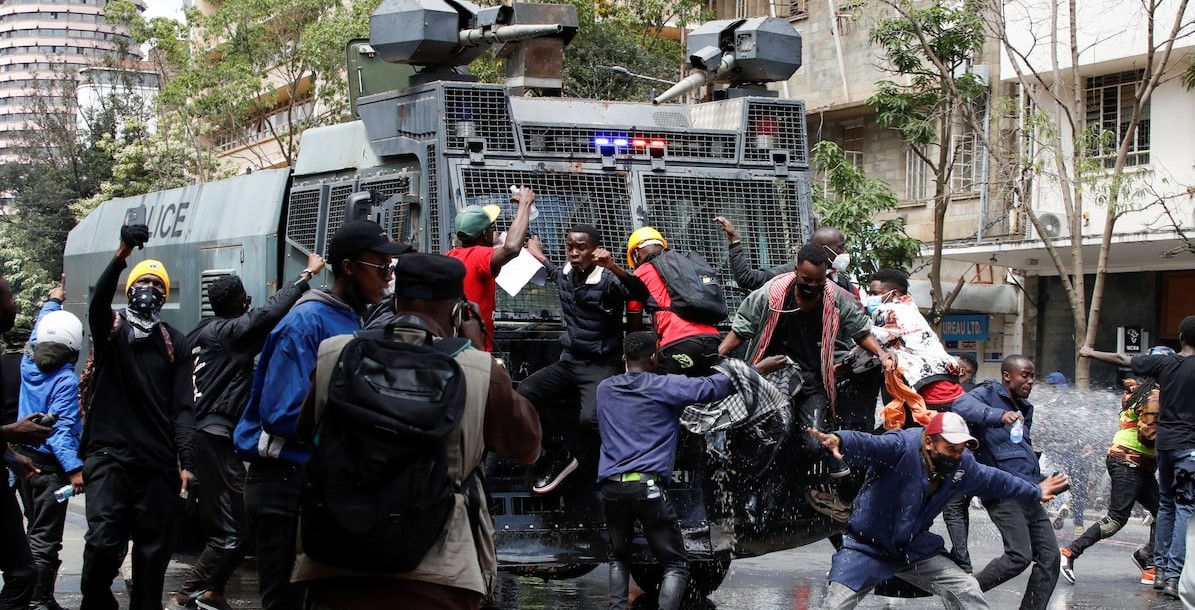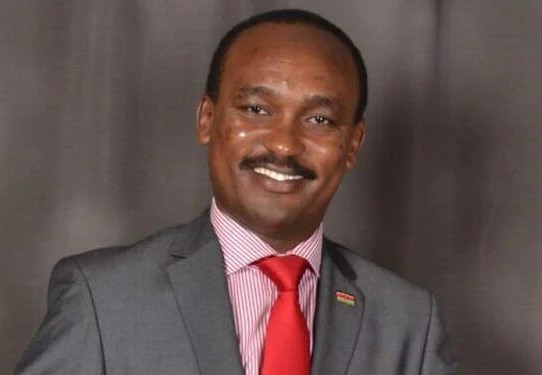Over 3,400 Kenyans in distress reported in Middle East since 2023 - Mudavadi
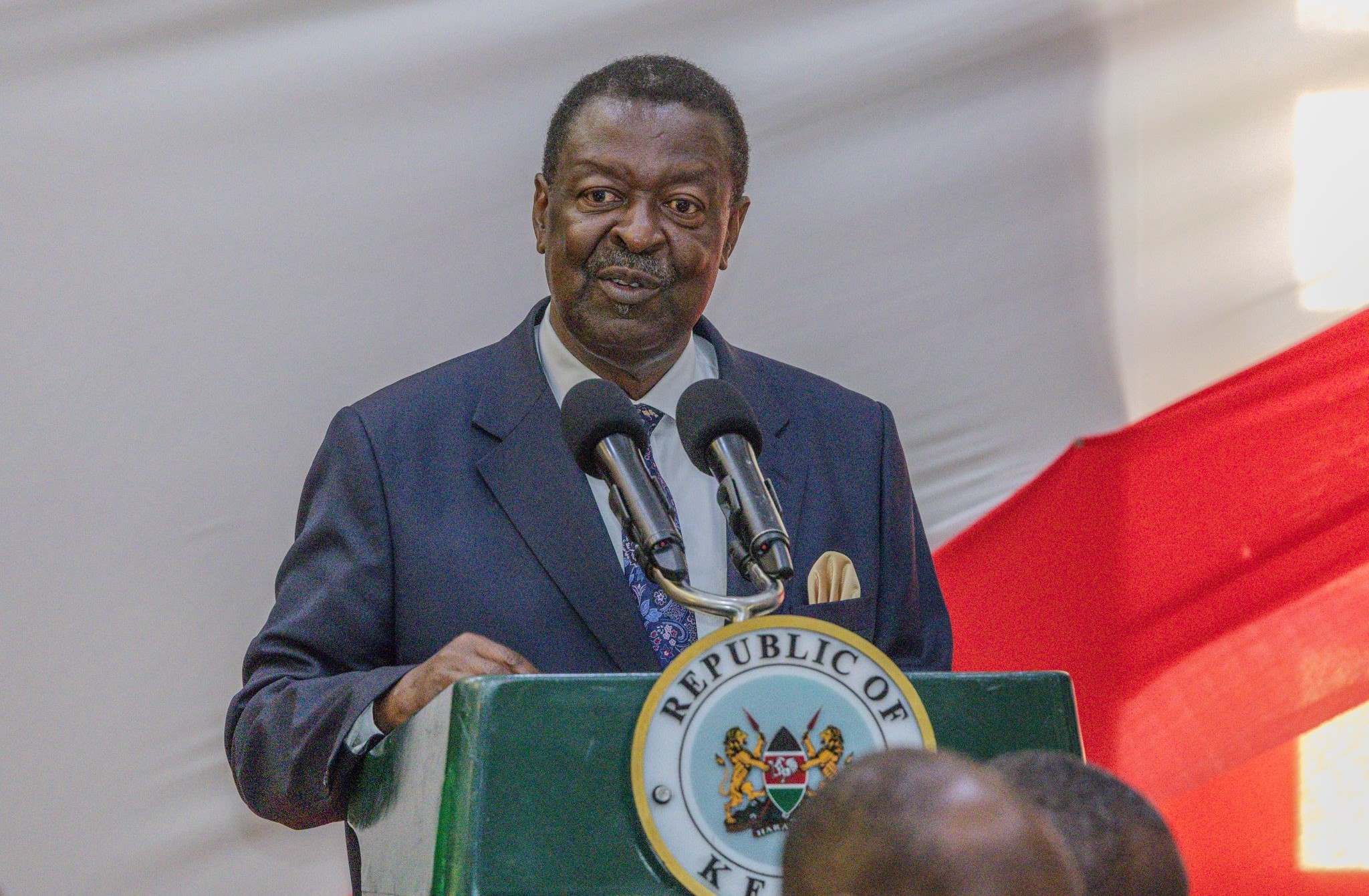
Mudavadi dismissed allegations that senior public officials or their relatives hold interests in recruitment firms sending Kenyans to the Gulf.
Over 3,400 cases of Kenyan workers in distress have been reported in the Middle East since 2023, prompting the government to expand consular services and introduce measures to protect citizens working abroad.
Appearing before the National Assembly on Wednesday, Foreign Affairs Cabinet Secretary Musalia Mudavadi said the rising number of Kenyans in Saudi Arabia, now estimated at 350,000, has increased pressure on Kenya’s missions, forcing the government to expand staffing, strengthen protections and open new consular offices to adequately respond to emergencies involving Kenyan workers abroad.
More To Read
- COTU urges Kenyan workers abroad to register with embassies for protection, support
- Government reveals over 200 Kenyans lured to join Russian military, some injured or stranded
- Kenya deregisters 680 rogue job agencies in crackdown on fake overseas recruiters
- Kenyans warned against using tourist visas to seek jobs abroad
- Government condemns death of Kilimani domestic worker, calls for swift justice
- Kenyan workers dying abroad are being buried without their families' consent, rights lobby warns
He was responding to questions from Samburu West MP Naisula Lesuuda, who sought clarification on the government’s interventions to safeguard Kenyans heading to or already working in Gulf states. He noted that the Ministry of Foreign and Diaspora Affairs has handled 3,452 distress cases involving Kenyan workers in the Middle East since 2023.
“The number of Kenyans living and working in the Kingdom of Saudi Arabia has increased exponentially, now estimated at 350,000,” he said.
To boost response capability, he said Kenya recently opened a consulate in Jeddah to support the Embassy in Riyadh.
“We will also be seeking more budgetary support to expand the capacity of our mission to serve Kenyans better. The government will be seeking funding for the establishment of a safe house for Kenyans in distress,” he said.
Lesuuda also raised concerns over recruitment processes and the wage structures governing Kenyans working in Saudi Arabia.
Mudavadi dismissed allegations that senior public officials or their relatives hold interests in recruitment firms sending Kenyans to the Gulf.
“Kenyans migrating abroad must have travel insurance cover. No single insurance company has a monopoly on covering Kenyans seeking jobs in the Gulf. Individuals and Kenyan private recruitment agencies are at liberty to choose their preferred insurance company,” he said.
He told MPs that negotiations with Saudi Arabia are ongoing to develop a more comprehensive bilateral labour framework covering both skilled and semi-skilled workers.
“Just this week, we have received official communication on enhanced wage agreements for Kenyans employed in the Kingdom of Saudi Arabia,” he said.
Mudavadi explained that the current minimum pay structure for domestic workers was set during a February 2019 deliberation between Saudi manpower firms and Kenyan recruitment agencies, where they agreed on a baseline salary of 850 Saudi Riyals. He added that Saudi Arabia has since rolled out reforms to strengthen worker protections.
“From October 1, 2025, Saudi Arabia officially launched Phase 3 of its Wage Protection System (WPS) for domestic workers. Under this phase, all employers who hire two or more domestic workers are now required to transfer salaries through official digital channels via MUSANED,” he said.
He noted that by January 2026, the digital payment system will apply to all domestic workers in the kingdom. Mudavadi described WPS as a “landmark reform” that enhances safeguards, encourages fair treatment and builds trust between workers, employers and recruitment agents.
On the regulation of recruitment firms, Mudavadi said all agencies are vetted by a Multi-Agency Committee.
“The committee vets all applications by recruitment agencies in line with Section 54A to 60 of the Labour Institutions Act 2007 and the Private Employment Agencies Regulations of 2016,” he said.
Requirements include a capital base of Sh5 million, adequate office facilities, educational qualifications for directors and managers, and proof of no criminal record.
“There are currently 594 recruitment agencies with valid licenses. The government has deregistered over 600 other agencies on various grounds of malpractices,” he said.
Mudavadi said Kenyans working abroad continue to attract global demand, adding that the government will keep strengthening protections so that “every Kenyan who steps out to earn abroad does so with the full backing and shield of their government.”
“Our citizens are not merely migrating for work; they are being actively recruited worldwide because of their skills, resilience and work ethic,” he said.
Mudavadi recently noted that Kenya is engaging Saudi Arabia on the growing problem of undocumented children born to Kenyan mothers.
He said the issue is widespread due to the large number of Kenyans living in the country, which he described as the third-largest labour market for foreign workers and home to more than 200,000 Kenyans.
“In Saudi Arabia, given the huge population of Kenyans working in the country, the problem of mothers with undocumented children is prevalent,” Mudavadi said during the Ministry’s Third Quarterly Briefing on Kenya’s Foreign Policy in Nairobi.
“The government is pursuing bilateral interventions, and this has been a subject of several parliamentary questions from members whose constituents have been affected in one way or another.”
He said mobile consular teams have conducted DNA testing to verify identities, collecting 707 DNA samples. Confirmed matches have enabled the issuance of birth certificates and supported repatriation processes.
He added that lobbying efforts led to the formation of a joint interdepartmental working group in January 2025, bringing together staff from the Kenyan Embassy in Riyadh and officials from Saudi Arabia’s ministries of Foreign Affairs, Labour, Interior and the General Directorate of Passports. The group has facilitated emergency travel documents for mothers and children lacking legal status.
“Since inception, these deliberate efforts have resulted in the safe repatriation of 59 mothers and 73 children back to Kenya,” he said.
State Department for Diaspora Affairs Principal Secretary Roseline Njogu urged Kenyans abroad to report any difficulties they encounter to missions, stressing that the Ministry takes service delivery concerns seriously and responds swiftly.
Top Stories Today


